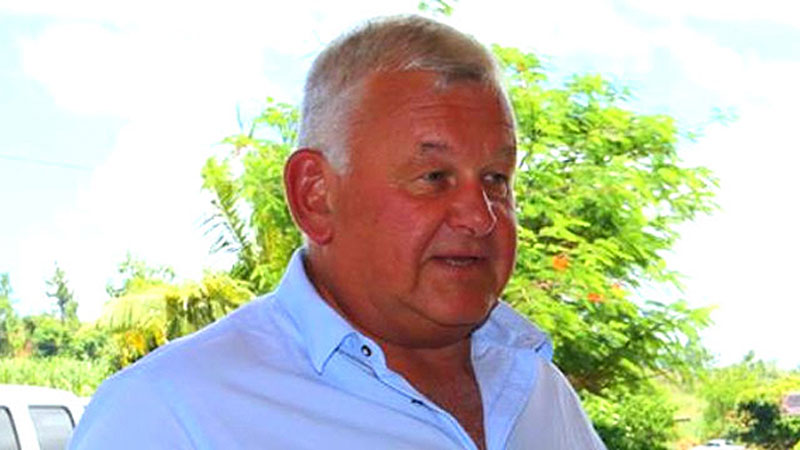
Fiji Sugar Corporation CEO Graham Clark says the Corporation did not have to take a loan for the fourth cane payment for the 2019 season as funding was from sugar proceeds.
The FSC secured a loan of $21.2 million from the FNPF in May last year to fund the fourth cane payment for the 2018 season.
Clark adds funding is also in place for the final cane payment for the 2019 season and no loan is required.
When questioned, Clark says funding will be from sugar sales proceeds and government’s contribution for the guaranteed cane price of $85 per tonne. He says an announcement will be made once preparation of the final cane payment has been completed.
According to the FSC’s 2019 Annual Report, the FSC secured multi-million dollar loans to meet operational expenditure, grower cane payments and capital expenditure.

According to the Annual Report, the FSC has debt repayment commitments amounting to $134.6 million during the financial year ending 31st May this year and FSC’s current liabilities exceeded its current assets by $164.8 million.
The FSC borrowed $32 million from Czarnikow Group Limited by way of trade finance and the loan will be repaid through the second and third shipments of sugar this year.
Apart from this, the FSC also secured a loan facility of $50 million from the FNPF to meet its working capital and capital expenditure requirements.
The loan is for a 15-year term secured by government guarantee.
It has also been revealed the FSC secured a further bridging finance facility of $21.2 million from the FNPF in May last year to fund the fourth cane payment for the 2018 season.
This payment included partial top-up by the FSC of the guaranteed price of $85 per tonne of cane.
The FSC also took a $20 million loan from Bred Bank during the 2019 financial year to assist with the upgrading work at the Lautoka, Rarawai and Labasa Sugar Mills.
The loan is for a four year term secured by government guarantee with principal of $5 million payable each year. As at 31st May, 2019 the facility is fully drawn and $5 million repaid.
It has also been revealed that in 2017, the government increased the government guarantee of $120 million to $322 million and the guarantee period has been extended up to 31st May 2022.
According to the FSC’s 2019 Annual Report, funding from the sale of non-productive assets is being utilised by the FSC to support its contribution for government’s $85 guaranteed cane price initiative.
As at 31st May last year, FSC’s net realised property sales were $23.04 million.
Fiji Sugar Corporation’s Auditor, Ernst and Young has highlighted that the appropriateness of the going concern assumption on which the FSC’s financial statements are prepared is critically dependent on the government support to the Corporation to enable the FSC to continue in operation for the foreseeable future.
The independent auditing company states the events and conditions mentioned in the report indicate that a material uncertainty exists that may cast significant doubt on the FSC’s ability to continue as a going concern.
Ernst and Young have further highlighted that the FSC’s financial statements do not include any adjustments relating to the recoverability and classifications of recorded asset amounts or to the amounts and classification of liabilities that may be necessary should the entity not continue as a going concern.
Meanwhile, FSC Chairman, Vishnu Mohan says the Board is actively addressing the impact of past legacy issues especially the Indian EXIM Bank loan and how the loan proceeds were grossly mismanaged.
He says the value of destruction to the business has been significant while servicing of the loan remains a drain on FSC’s cash flow.

Mohan adds the current Board and Management which have inherited this legacy issue are actively working on a balance sheet restructuring programme including debt/equity conversion and capital optimization, details of which will be revealed at the appropriate time.
The FSC Chairman says the age-old mills are always a cause for concern and considerable time and efforts are spent not only in keeping them in good working conditions but also in making sure that the sugar extraction is maintained to the maximum.
Stay tuned for the latest news on our radio stations


